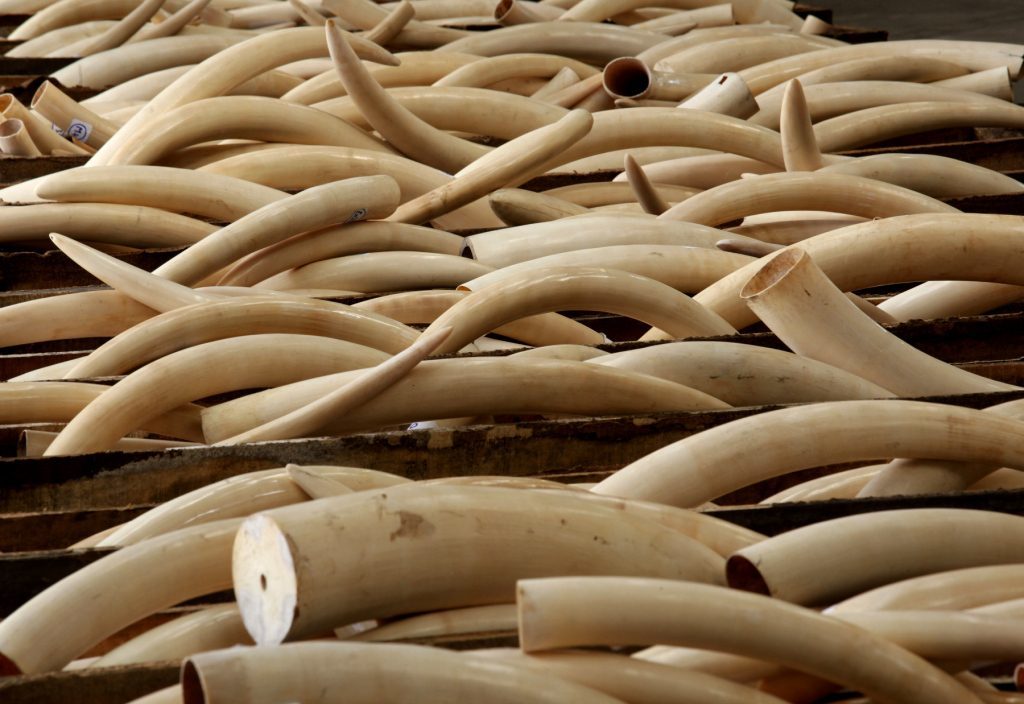
South Sudan authorities have arrested an army major and a Chinese oil worker for allegedly trafficking elephant ivory and endangered pangolin meat through the country’s Paloich oil fields.
National wildlife service officer Bona Adino said he arrested the army officer at Juba International Airport on Tuesday with 27 pieces of cut ivory from eight elephants on a cargo flight to Paloich, the country’s only functioning oil fields.
On Wednesday, an airport sniffer dog unit found 10 kilograms of frozen pangolin meat in the luggage of a Chinese national upon his arrival in Juba from Paloich where he works as an oil engineer, according to documents from National Wildlife Service external relations director Khamis Adieng.
The Chinese man was arrested but released with the contraband, Mr Adieng said.
“I’m trying to work for him to be brought back. I hope he didn’t consume the meat,” he said. Some Chinese people highly prize the meat and scales of pangolin, or scaly anteater.
The ivory was likely destined for Sudan, said Mr Adieng. Further tests will determine if the ivory comes from elephants poached in South Sudan or neighbouring countries, he added.
The two cases show Paloich is a hub for wildlife trafficking, said the Wildlife Conservation Society’s South Sudan director Paul Elkan. China has invested heavily in South Sudan’s oil sector with daily flights between Juba and Paloich.
At least 30% of collared elephants in South Sudan were killed during the last two and a half years of war, the wildlife conservation group said – with at least 30 more of the pachyderms killed this year so far, according to wildlife service figures.